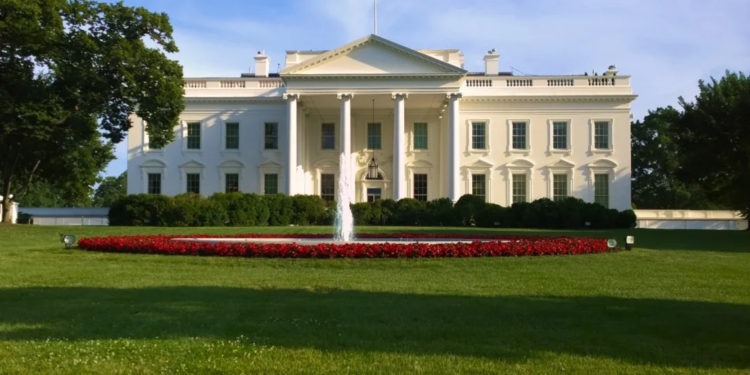LOUDONVILLE — The all-time top five Commanders in Chief remain Franklin D. Roosevelt, Abraham Lincoln, George Washington, Theodore Roosevelt and Thomas Jefferson, according to the seventh Siena College research Institute’s Survey of U.S. Presidents.
“The [141] scholars who participate in this study have changed over 40 years but the top five — FDR, Abe, Washington, Teddy and Jefferson — remain carved in granite year after year,” said Don Levy, SCRI director. “In fact, this year a large plurality of 41 percent say that if we added onto Rushmore, it should be FDR’s face gracing the South Dakota hills.”
For the second time, scholars include Donald Trump along with Andrew Johnson, James Buchanan, Warren Harding and Franklin Pierce in the bottom five. Four of the five, without Trump, have ranked at the bottom of the list in each of the seven surveys SCRI has conducted since 1982.
President Joe Biden ranked 19th of the 45 presidents who have served in the White House. He ranked ninth on his ability to compromise, 10th in court and executive appointments and 12th on integrity. But, comes in 34th on luck, 31st on his relationship with Congress and 30th on his communication abilities, according to the poll.
Trump ranked 43rd in the latest survey, beating out only Buchanan and Johnson. He ranked near the bottom on most categories including 44th in his ability to compromise, 44th in his executive ability, 43rd on his ability to communicate and 45th on his foreign policy accomplishments. On the plus side, he ranked 17th in luck, 32nd in party leadership and 23rd in his willingness to take risks.
“It is too early to say how history will ultimately rate Mr. Trump,” Levy said. “Despite a third, a plurality, saying Trump contributed most of any president to weakening the office, a few would like to see Trump rather than FDR added to Rushmore.”

Forty-one percent would pick FDR added to Rushmore, 11 percent say it should be Obama and 7 percent say it should be Ronald Reagan, who placed 18th overall, according to the latest survey.
Scholars rate presidents on each of 20 categories that include attributes (background, imagination, integrity, intelligence, luck and willingness to take risks,) abilities (compromising, executive ability, leadership, communication, and overall ability) and accomplishments (party leadership, relationship with Congress, court appointments, handling the economy, executive appointments, domestic accomplishments, foreign policy accomplishments and avoiding mistakes.)
Theodore Roosevelt is rated highest on attributes, Lincoln tops the list on abilities and Franklin Roosevelt leads on accomplishments.
Barack Obama placed 11th, his highest position ever. He placed in the top 10 in imagination, integrity, intelligence, ability to communicate and court appointments. He fell short on his relationship with Congress (27th) and his ability to willingness to take risks (21st.)
“While some have questioned the results of this survey, we note that participating scholars for over 40 years have been incredibly consistent in naming the top and most of the bottom presidents,” Levy said. “Some have argued that the rankings favor Democrats over Republicans but Lincoln and Theodore Roosevelt are in the top five, and Eisenhower is sixth. We don’t ask the historians and political scientists that respond to name their political ideology, just to painstakingly rate each of 45 individual presidents on 20 attributes, abilities and accomplishments.”
Odds and Ends
- By 44-35 percent, the scholars believe the office of President of the United States has become too powerful.
- 51 percent say they think the framers of the constitution would say that our system of checks and balances is working not very or not at all well.
- 63 percent would argue in favor of electing the President by a national popular vote, compared to 17 percent who prefer the Electoral College.
- By 75-5 percent, scholars think it at least somewhat or very likely, rather than not too or not at all likely, that through 2032, the U.S. will continue to be a democratic republic.
- 69 percent believe it likely that by 2032 a woman will be elected president.
The SCRI survey of U.S. Presidents is based on respsonses from 141 presidential scholars, historians and political scientists. Respondents ranked each of the 45 presidents on a scale of one to five on each 20 attributes, abilities and accomplishments. Overall rankings were computed by assigning equal weight to each of those 20 categories.



